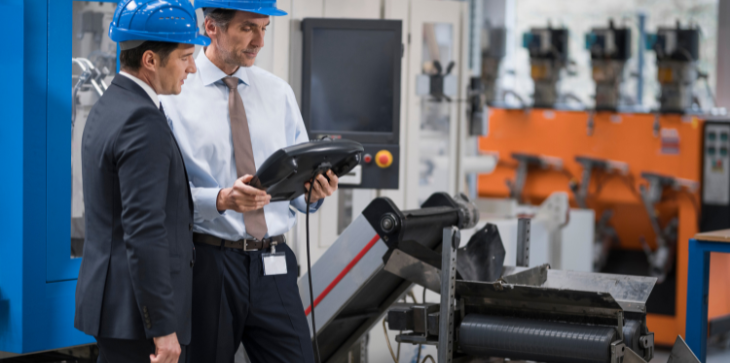Thailand’s manufacturing sector has long been a cornerstone of its economy, contributing significantly to GDP and employment. As the country continues to strengthen its position as a global manufacturing hub, the integration of advanced IT support into manufacturing operations is becoming a vital factor for competitiveness. From enhancing operational efficiency to driving innovation, IT solutions are transforming the manufacturing landscape in Thailand.
Thailand’s Manufacturing Landscape
Thailand’s manufacturing sector is diverse, spanning industries such as automotive, electronics, textiles, and food processing. The country’s strategic location, robust infrastructure, and government support have made it a preferred destination for foreign direct investment (FDI).
However, the sector faces growing challenges, including:
- Rising Labor Costs: Increasing wages necessitate more efficient operations to maintain profitability.
- Global Competition: Manufacturers must deliver higher quality and shorter lead times to stay competitive.
- Sustainability Requirements: Adhering to environmental standards and reducing carbon footprints is becoming a critical priority.
- Technological Disruption: Rapid advancements in Industry 4.0 technologies require companies to adapt quickly.
IT support is emerging as a key enabler in overcoming these challenges.
Case Study : Electronics Manufacturing
An electronics manufacturer in Thailand faced challenges in managing its growing production volumes while maintaining quality. By adopting a Manufacturing Execution System (MES), the company achieved end-to-end visibility of its production processes. The system’s real-time monitoring capabilities reduced defects by 25%, saving millions in rework costs.
Benefits of IT Support in Manufacturing Operations in Thailand
1. Enhancing Productivity and Efficiency
One of the primary benefits of IT integration is improved productivity. Automated systems reduce manual intervention, ensuring consistent output and minimizing downtime. For instance, a food processing plant in Thailand implemented an Enterprise Resource Planning (ERP) system to automate inventory tracking and production planning. The result was a 20% increase in operational efficiency and significant cost savings.
2. Improving Quality Control
IT support plays a crucial role in maintaining high-quality standards. Advanced analytics tools can detect anomalies in production processes in real-time, allowing manufacturers to address issues before they escalate. In the electronics industry, for example, precision and reliability are paramount. Thai manufacturers are increasingly adopting AI-driven quality control systems to identify defects and enhance product consistency.
3. Strengthening Supply Chain Resilience
Global supply chain disruptions during the pandemic highlighted the importance of robust IT systems. Thai manufacturers are now leveraging IT solutions to monitor supply chain performance, forecast demand, and optimize logistics. Blockchain technology is also gaining traction, enabling secure and transparent tracking of goods across the supply chain.
The Thai government’s initiatives, such as the Thailand 4.0 policy, aim to transform the manufacturing sector into a high-tech and innovation-driven industry. Public-private partnerships are crucial in accelerating IT adoption and addressing challenges. For instance, government grants and subsidies can alleviate the financial burden of IT investments for SMEs.
READ ALSO : Data Ethics: Balancing Privacy and Innovation in IT Systems
Challenges in Implementing IT Support
Despite its advantages, the adoption of IT solutions in manufacturing is not without hurdles:
- High Initial Costs: Implementing advanced IT systems requires significant investment, which can be a barrier for small and medium-sized enterprises (SMEs).
- Workforce Skill Gaps: Effective utilization of IT tools demands a skilled workforce. Manufacturers need to invest in training programs to upskill employees.
- Data Security Risks: The increasing digitization of manufacturing processes exposes companies to cybersecurity threats. Robust security measures are essential to mitigate risks.
- Resistance to Change: Adopting new technologies often meets resistance from employees accustomed to traditional methods. Clear communication and change management strategies are vital.
Moreover, collaboration with academic institutions and IT service providers can bridge the skill gap. Training programs and certifications in emerging technologies like AI, IoT, and cybersecurity will prepare the workforce for the future.
Optimizing manufacturing operations in Thailand through IT support is not just a trend—it’s a necessity. As global competition intensifies and technological advancements reshape the industry, manufacturers must embrace IT solutions to stay relevant and thrive.





